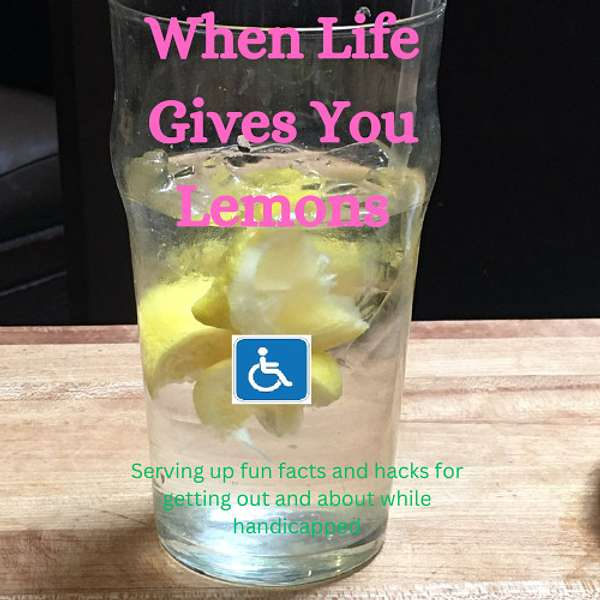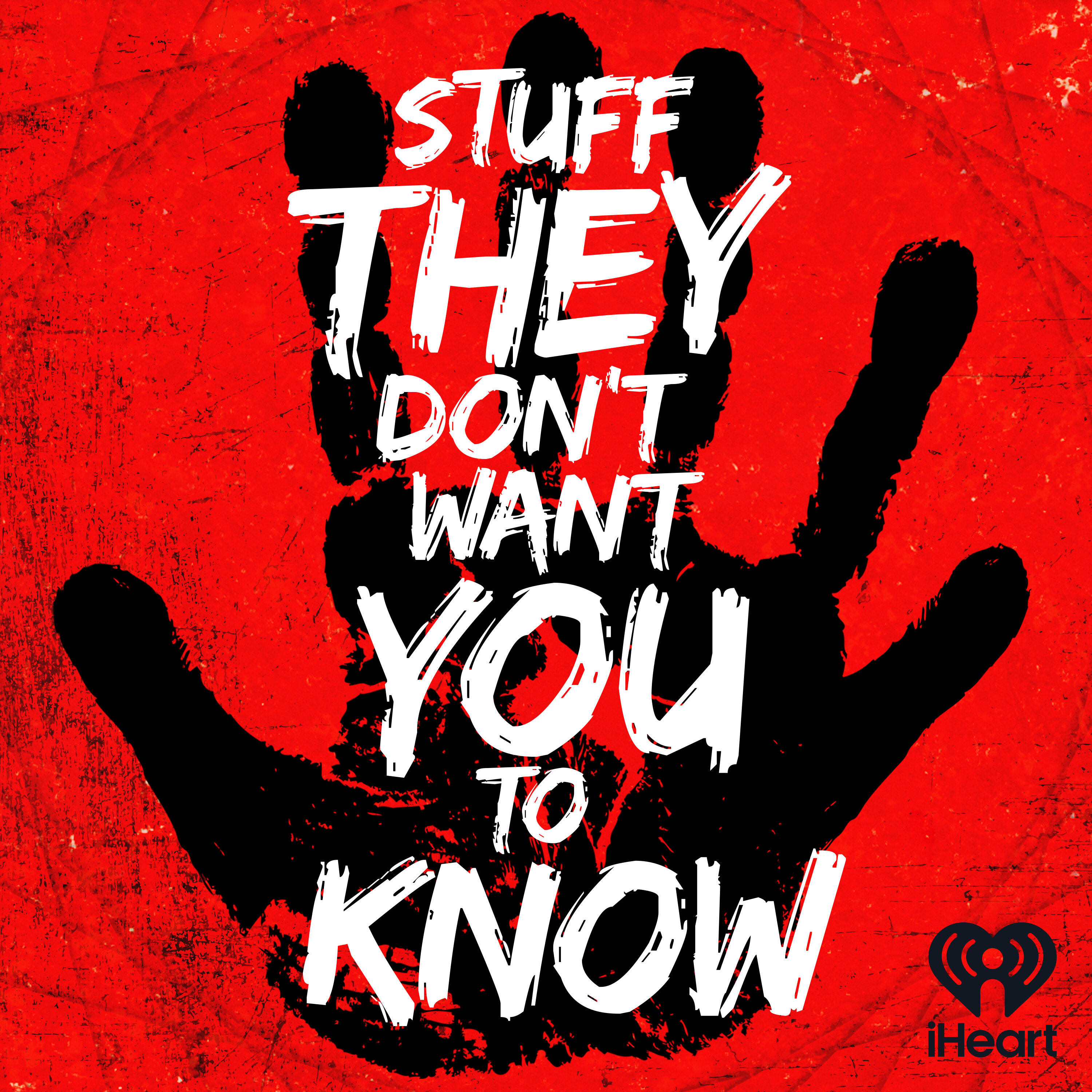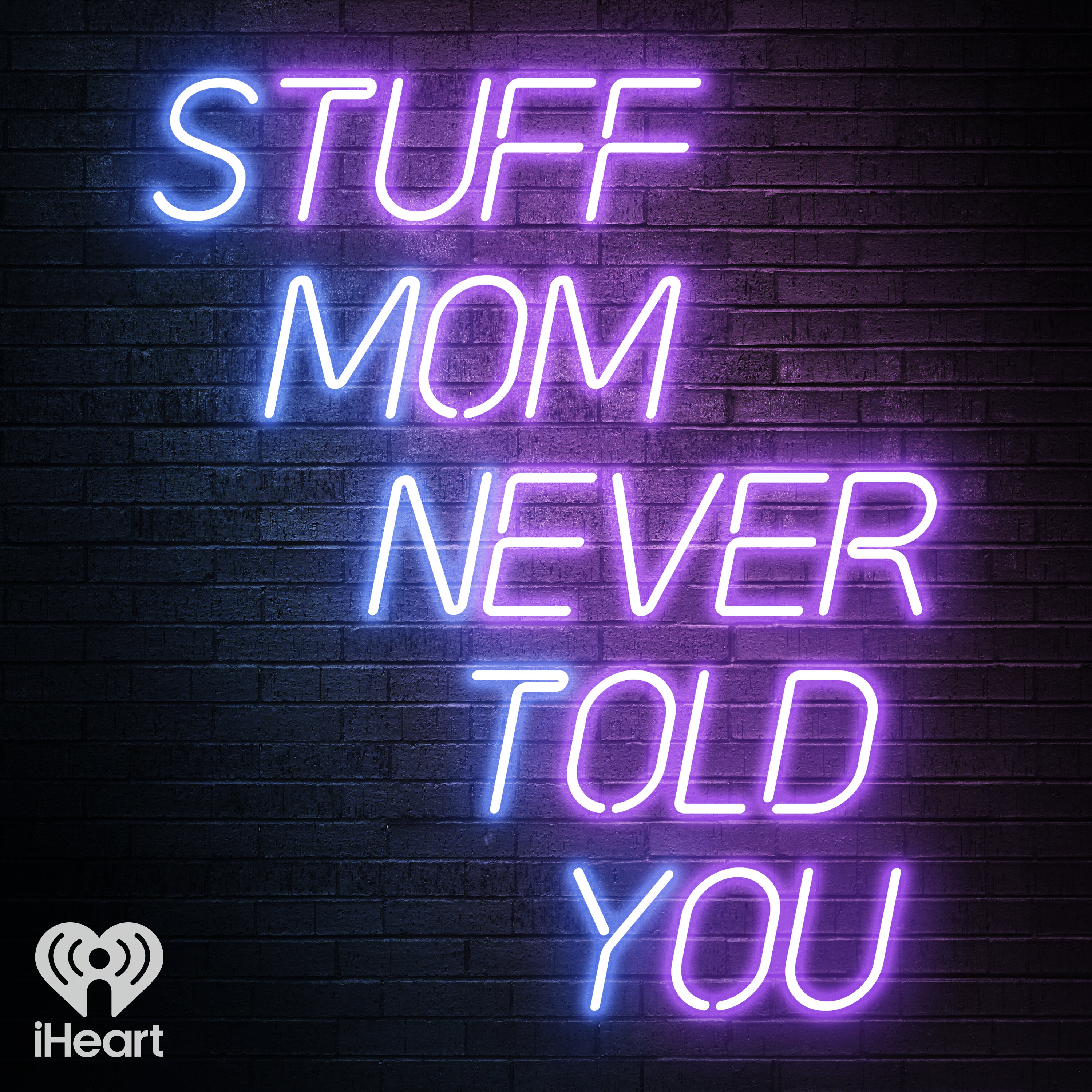
When Life Gives You Lemons
We do a bit of Research into handicapped travel issues and provide some solutions. Mobility, Hearing, Sight, Mental issues included. so far our episodes have included some information on Ataxia, Cerebral Palsy, Deafness, Dancing Sickness, Gulf War Syndrome, Long Covid and Wheelchairs. We are both Disability Advocates and realize there are too many diseases and conditions to cover and try to discuss the most common problems disabled people face and spread some awareness of disabled issues non-disabled people are unaware of.
CORRECTION
On a Previous episode I described how to enter our End Of Season contest. Step 1 click on the support our show link. Step 1 we require a one time payment (This has changed during our season) of $3. Step 3 (get you back to a one time payment) click on the $3 Subscription button. The following business day cancel the subscription (if you do it same day your bank may start thinking FRAUD. Step 4 Your done. Thanks for entering and "may the odds be forever in your favor",
When Life Gives You Lemons
Methylene Blue: Medicine's Rediscovered Wonder
Methylene blue might be the most intriguing medical compound you've never heard of—unless you've been scrolling through TikTok lately. Kevin and Colmie dive deep into this fascinating substance that began life as a simple cloth dye in 1876 before finding its way into medicine.
The contrast between scientific reality and social media hype creates a compelling narrative. While the FDA has approved methylene blue for only one rare blood disorder (methemoglobinemia), researchers are conducting over 1,200 clinical trials involving some 2,800 participants to explore its potential in treating everything from Alzheimer's disease to cancer. Meanwhile, influencers are promoting it as an anti-aging miracle and cognitive enhancer—the real-life version of the fictional "limitless" drug.
Kevin and Colmie carefully separate scientific fact from dangerous fiction, explaining how methylene blue functions as both a diagnostic tool and potential treatment. They outline the serious risks of self-experimentation, particularly for people with G6PD deficiency or those taking antidepressants, where interactions can be life-threatening. Their thoughtful exploration highlights a crucial message about trusting medical professionals over social media trends when it comes to health decisions.
The hosts also share details about their podcast's annual contest, inviting listeners to send fan mail for a chance to win personalized artwork. Their warm, conversational approach makes complex medical information accessible while emphasizing the importance of evidence-based medicine over trending health fads. Whether you're curious about cutting-edge medical research or concerned about harmful health trends circulating online, this episode offers valuable insights delivered with care and humor.
The circle app is free to use app available in the App Store or Play Store.
Sounds right. Welcome to our podcast. When Life Gives you Lemons, I'm Kevin.
Palmi:And I'm Palmi. We consider ourselves disability advocates and intend to spotlight some disability issues and things we find interesting that we frequently encounter when we're out and about. Also some history on disability that we find interesting. Welcome back, guys. This is when Life Gives you Lemons.
Kevin:And this week we're talking about methylene blue.
Palmi:And why are we talking about this, Kevin?
Kevin:Well, one of the websites that we've previously mentioned or recommended is called Accessible Go. They invest quite a bit into what they're doing. They have purchased a community application that you can sign up for. It's called the Circle Community. Once you get into Circle and you can choose your community, you look for the accessible go community and in that they have several subcategories, like travelers, just miscellaneous questions, what have you and, uh, those folks have in the past been very frequently active and answer my questions about, say, a certain disability condition I don't have.
Palmi:Yeah, and we use that app for when we travel about and make reservations and stuff like that, so it's been very helpful for us, yeah it has been very helpful. Okay, so it was methylene blue. Is that what you said? Methylene blue, yes, Methylene blue, sorry.
Kevin:Most commonly, assuming you've been. Almost all of us have been to the doctors. Almost all of this has been done by doctors. But if they've used a wry imaging or really any sort of imaging with contrast, methylene blue is what they're using.
Palmi:So I didn't know anything about it. So it was very interesting and apparently it's.
Kevin:I know you hate this topic, or I hate this word, but it is kind of trending right now. Yeah, trending is one of the counter-trenders and we'll get more into that later.
Palmi:So methylene blue it is known as methylene-ism.
Kevin:Let's talk a little bit about that story. First About what it's history. Yeah, that's what. A little bit about its history first About what. Its history.
Palmi:Yeah, that's what I'm going to do. It started out as a cloth dye. Back in 1876.
Kevin:Yeah, and it you know previously, blue and purple were, kind of by default, a little bit more expensive than other colors, so not that many people could get it. So in the 19th century chemists were being tried by well, let's see what we can come up with to do things cheaper in this area.
Palmi:And dye things blue and purple. And it's classified as a salt. It's a salt, yeah yeah. And they used it as a dye originally to dye different things with, but then later on, they realized that it luminized luminous and light and they started using it in medicines Right away. Originally they used it to help with urinary tract infections and malaria, but then other medicines came about and were more effective than it was. It took longer for it to cure, right, right now.
Kevin:I'm just going to throw this out there, it may fit in better later. Or this other it may fit in better later, but it's involved in over 1,200 clinical trials Right now. Currently those are either ongoing clinical trials or playing critical trials. I think, polly, you mentioned that 2,800 individuals are involved in those trials right now. So obviously, because they like large numbers and studies, all the studies are not ongoing. They just have them planned out perhaps or in the stages of being planned no, I haven't mentioned that yet, but we were going to do that later.
Palmi:So, um, but right now, like he said, it's really. Um, we've mentioned it was trending, but it's also very, very uh, it's an old medicine that's becoming very popular in the medical community right now. Like, like Kevin said, it's out there and they're starting to discover it has a lot of right now. The FDA approves it for two things, and I'm going to need help and we're not even sure we're saying it right but the FDA approves it for a specific disease, and this disease is a rare blood disease where the hemoglobin can't carry oxygen properly. Kevin, you want to try to shoot out this.
Kevin:I'm going to take a stab at it I won't scare and see I'm wrong, but it's methylmogamemia Methamog, methamog.
Palmi:Methamog.
Kevin:Methamog, methamog, methamog, methamog, methamog, methamog, methamog, methamog.
Palmi:Methamog, methamog, methamog, methamog, methamog, methamog, methamog, methamog, methamog, methamog, meth. So that right now is the only FDA approval as medicine that it is approved for. However, like Kevin said, there's all kinds of studies right now where they think it might be very helpful, and the reason it's kind of a big thing right now is because a lot of influencers on TikTok are claiming that it has because of this ability to take oxygen. To carry oxygen properly through your body is kind of what happens when you, when we were younger and it happened. We do less of that as we age, so they've clicked onto this and figured out that maybe it's an anti aging clicked onto this and figured out that maybe it's an anti-aging.
Palmi:I want to say the big pharma does want you to know about it. It's like a secret. You know, like a youth, what is it? Everybody's looking for the fountain of youth.
Palmi:Yeah, so that's the big TikTok thing going around right now, but it's really controversial because it is an actual medicine and there are side effects. When you use something like this, when it's not used for what it's meant for, because there specifically is a side effect, there is. They've proven that. If you have a Sorry, there's lots of research done here. Kevin did a lot of research on this and I'm trying to fumble through it here.
Palmi:Do you remember what the I remember Okay so people with G6PH deficiency, which is a common genetic condition, can suffer serious side effects, like anemia and jaundice, from even a small dosage. And it can also dangerously interact with antidepressants, which is pretty popular in this society right now, and potentially lead to serotonin syndrome, which I think that means, like depression, causes major depression. So you know there, you wouldn't want to take this. People are doing this. It's called going off label. This it's called um going off label and um just kind of experimenting with this on their own and this I guess supposedly this is happening on um x or formerly twitter, and it's being discussed about anti-aging remedies and cognitive enhancements and stuff like that as of right in July 2025.
Palmi:It's been reported to increase energy, focus and mental clarity while using it and boost your brain power and pairs mitochondria. So these claims have not been backed up by any robust clinical evidence or considered and are considered experimental, with warnings about potential risk to kidney disease, dna harm and also warnings about possible death. So again, we've told you this several times in our podcast previously we are not doctors, we don't claim to to be, we have no medical experience whatsoever, but and we only do research via the web, web, internet, which we all know, you know the web internet is not always perfect, so we influencer is telling you to do it.
Kevin:You might want to consult somebody that knows a little bit more than the influencer. The influencer on social media is making money online. They're usually making money by their videos they post on.
Palmi:Instagram, YouTube, Twitter, Facebook.
Kevin:You know, all the platforms for the kind of thing have reward systems or monetary rewards, or they could just be paid by whoever to say whatever right, but it certainly does look like it may be a very um positive uh drug once all the research has been done.
Kevin:Yeah, A lot of times after medical research is done and something gets removed for use, the doctors will know that it is, you know, treating, say, convulsions and epilepsy. In my case I don't have epilepsy but I share a drug with epileptics because it reduces my muscular contractions, involuntary muscular contractions, which I guess is kind of like a mild seizure, I guess you could say.
Palmi:Or loss of muscle control. Basically.
Kevin:Lots of controlled my muscles. But the drug I'm taking, really, when a doctor just a general doctor, not a movement disorder specialist who knows it may have more than one use, sees that you'll say oh you're epileptic. And I'll have to get that long explanation.
Palmi:no, and also it's used for depression and stuff like that. So sometimes it's confusing. I take a drug that is a drug that they use for depression, but I use it to enlarge my esophagus because one of the side effects is it enlarges your esophagus. So a lot of times doctors use the side effects that they they find that happen in a drug like that and use use the side effect as long as the there's no, no counter effects, um, based from you using it like that. So that's what I use mine for is my esophagus is uh, it closes up and so I use it to enlarge my esophagus. So I don't have, I have GERDs, and so it closes and enlarges my esophagus. So you never know what a drug is and you hear these drug advertisements on TV about all the side effects you know on every drug that's out there. So every drug has a side effect.
Kevin:And, if I'm not mistaken, the FDA requires when they submit a drug for testing they have to list like 10 side effects, even if there are zero.
Palmi:Right. They have to like Well anything that may happen has to be listed.
Kevin:They have to like get creative and say well, this guy had food poisoning, so he could say diarrhea and nausea. Yeah, and they kind of have two they could talk about.
Palmi:Methylene blue is also used as a diagnostic tool. It's used in lymph node dissections and to test for urinary tract leaks and for fistulas.
Kevin:So it is used because it does it lights up very nicely when used in imaging for tissue Right Because it does flow around, get lodged in tissue and the image they get back out of that how ice tissue. They may not have been able to see clearly without it.
Palmi:So there's lots of good hope that this will have lots of good stuff happen in the future. But as we said, you know, don't be experimenting with it on yourself right now.
Kevin:As of right now, in 2025, it's got one disease it can treat and anything beyond that that talk to your doctor and get the real scoop so it says it's terminal uh half-life is 5 to 24 hours.
Palmi:When given interveniously, monitoring is recommended, especially in uh. Apparently they use it in veterinary uses where it can cause oxidization damage in red blood cells, particularly in cats. And then there's also one medical, non-medical application they use it in aquaculture to treat fungal infections, bacterias, viruses and nitrate poisoning in fish.
Kevin:Okay, it's also used as a dye in the treatment of some of these conditions, but it's strictly used as a dye. I say again, I'm going to mutilate some words that I'm not familiar with. So, infosfamide-induced encephalopathy, which is a rare chemo-related brain toxicity, again, it's administered in the affected area, in the affected area to highlight what tissues may have been affected by, I'm assuming it was some sort of chemotherapy, and it's also used to explore early stage Alzheimer's. Ie what tissue of the brain has already been affected?
Palmi:or not.
Kevin:In other words, they can get MRIs that show your brain's blue without a functional FRI, which is a whole other ball of wax, you know, where the part of your brain lights up that's being used, which can take quite a while because I'm sure there are many parts that evolved in testing in Alzheimer's On this. They just see, okay, what tissue's not looking normal, right, what tissue is not looking normal?
Palmi:Right what tissue is affected by being lit up for some reason. So those are areas that they're hoping that the research will help is Alzheimer's disease and cognitive decline.
Kevin:It's also used in what's called the BLOSH trial, which is being used in concert with other drugs in critical care to treat septic shock.
Palmi:And septic shock. I didn't know what it is, but it's organ injury or damage, infection with low blood pressure, abnormally in cell and then also in cancer treatment. The early phase trials are assessing the potential of enhancing chemotherapy chemotherapy or acting as a radio sensitivity in cancers like glioblastism and breast cancer. And then neuropsychologic and metabolic disorders. Some studies are investigating they're investigating its role in mood regulation and mitochondria function and oxidative studies, stress studies and, as we said before, over 2,800 individuals are participating in the related studies, trials on using the. So I think it's as clear as mud.
Kevin:Well, I'm reading this one part. It basically is saying the same thing you said, but it's not mentioning TikTok or influencers or trending or anything like that. It's being touted as a limitless drug.
Palmi:A what?
Kevin:Limitless drug.
Palmi:Yeah, well, that's what their hopes are in the future with all these trials.
Kevin:Yeah, I think they're trying to find the limits, so it's not necessarily going to be a limitless drug anymore.
Palmi:Yeah, I hope so. We're always in hope. I mean you and I. I mean we're out here looking. I mean right now you have an end-of-life diagnosis. I mean right now you have an end-of-life diagnosis, so you're always hoping that something comes up and they have this miracle cure that will cure. I mean there's hundreds of thousands of people like you that are hoping for a miracle cure.
Kevin:Well, the bottom line in my case is, if they were to find a cure and stop it, great, but it's not going to cure me, so to speak. It's not going to make the damage that's been done be undone.
Palmi:No, no, never know.
Kevin:We'll see.
Palmi:If you're going to have hope, you might as well have 100% hope. Yes, might as well, go for the brass ring.
Kevin:I'm going to hope my fairy godmother comes by and snaps her fingers and says Bibbidi-bobbidi-boo, you get the whole pumpkin and I just get a complete life do-over. How's that?
Palmi:Might as well go for it. Hope is not limited. Might as well go for it all. So final thoughts guys, if you're considering methylene blue, especially off-label uses, consult your healthcare provider. The evidence leads towards it's being safe for that one specific disease that we can't pronounce, but other uses are debated and need more research. Key point is it is only used for that one disease a condition where blood cannot carry oxygen well disease, a condition where blood cannot carry oxygen well and it seems likely to be effective for only that purpose at this time. Proven for that purpose at this time. Research suggests that it has potential benefits for microchondric functions and research suggests it may have potential benefits for cognitive health.
Palmi:But these uses are not yet proven or FDA approved. These controversies around off-label uses like anti-aging, with some claiming benefits and others warning of risks like kidney diseases, kidney damage. So approach these with caution or just don't approach them, would be my suggestion. Uh, it can cause side, serious side effects like headaches and nausea. It's risky for people with the six g6 ph deficiency, which who knows? If you have that until suddenly you have, you have terrible side effects.
Palmi:Or those with certain medications. So medical advice is essential before you do anything like that.
Kevin:Definitely. I'm assuming it might be associated also with either a dietary restriction, maybe an allergy or something like that.
Palmi:Well it's your DNA.
Kevin:So yeah, People don't know what's in their DNA until you have DNA tests. If you have an allergic reaction, to say bee stings, you don't necessarily know which gene causes that. So a doctor may, because because doctors read this kind of stuff.
Palmi:But it may be too late after you've done it.
Kevin:I doubt they make the words as badly as we do.
Palmi:That's why we weren't doctors. Yeah, okay, so let weren't doctors. Yeah, okay, so let's do some house cleaning. Housekeeping, sorry, house cleaning, that's my job.
Kevin:If you're house cleaning, call me.
Palmi:Don't call me, I'm not involved in this business whatsoever. I'm not cleaning either, as last year.
Kevin:This year we're going to give away a prize at the end of the season. The way you enter it is by sending us fan mail and with that fan mail.
Kevin:you have to provide us with a way to contact you via email should you win this contest. Email address is a good one, as long as you check your email regularly. If you happen to switch email providers, just update us, update us. So we do not keep email. We don do not keep email. We don't have any email marketing campaigns. We don't have any sponsors. We don't have any commercials. We don't.
Palmi:But we do have a very nice niece who is our artist, our in-house artist, and this year she would like to do something a little more personalized to the winner and so she has requested that we do the the drawing a little earlier in the season. So we will draw earlier in the season so you get those entries in right away, so we can get. Um, we, as we've told you before, we're going to to end in November this year, right, kevin?
Kevin:Yes.
Palmi:So get those entries in and then, so she has time to, she wants to have your suggestion of what you would like your pitcher your not pitcher, what is it called Art Art to have in it. And so she has time to produce it and then get it to you.
Kevin:Okay, now I'm going to simplify that a little bit. She likes to do the things Pombi said, but she also likes to do things you like.
Palmi:Right, so she wants your personality in it.
Kevin:Yeah.
Palmi:If you like horses, if you like cats, if you like dogs, I'm going to use a better example.
Kevin:Okay, for example, on our Facebook page for Lesser Ruiz, I've been using pictures from various users doing things they enjoy to do.
Palmi:Oh yeah.
Kevin:That would be an excellent example of something she'd like to include in there.
Palmi:If you're a wheelchair racer, maybe a toy in the background, or a trophy or whatever. Or if you're're a wheelchair racer.
Kevin:Maybe a toy in the background or a trophy or whatever, or if you're in a wheelchair or if you have a favorite hobby or activity, and not to make anybody paranoid but she's also a member of our Facebook page, so she sees those images and she's perfectly happy working with them. But we basically want to do our drawing before the last episode. Doing our drawing in the last episode caused us a lot of problems. Last year she did a very fancy watercolor which then she shipped, and she's a man y'all. So we're talking snow, apparently. The government hasn't confirmed this, but my theory is her postal because she showed it via the Postal Service bought the insurance of the whole nine yards, actually went out of her way to buy a dice frame to put it in.
Palmi:I don't think she's buying a frame this year because it broke into 100 billion pieces and it was ruined by ice and snow. It never made it past Maine.
Kevin:I don't think, and since she made a painting that was watercolor. You can imagine what happens to that painting when the snow gets in the package with it. The snow melts when they bring it in and open up the package.
Palmi:It was not what it started to be.
Kevin:Yeah, so basically that painting was ruined and she had to start all over again.
Palmi:So that was not nice for her to have to redo.
Kevin:So we don't want to get in the rush situation we were in last year. Right, oh, my God. You know we got to replace this. You know a lot of her did do it.
Palmi:She did it as a favor for us, because she enjoys doing it, so we don't want it to be a hassle for her.
Kevin:So all right, is that it? That's about it Okay. I'm sure people that's going to be.
Palmi:Okay so big enough. Send in your suggestions and fan mail and let us know what ideas you would like to hear about on our podcast.
Kevin:next episode your fan mail is always welcome, all right, be it a suggestion or to enter the contest. But entering the contest, we do need to know a name or an email address, who we're talking to. So until next time, guys, see you later. Until next episode, take those lemons and make your own lemonade.
Podcasts we love
Check out these other fine podcasts recommended by us, not an algorithm.

When Life Gives You Lemons
Kevin & Palmi Henry
Stuff They Don't Want You To Know
iHeartPodcasts
Stuff Mom Never Told You
iHeartPodcasts
Stuff You Missed in History Class
iHeartPodcasts
Planet Money
NPR
Ridiculous History
iHeartPodcasts
The Way I Heard It with Mike Rowe
The Way I Heard It with Mike Rowe




